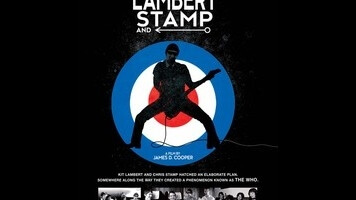Which isn’t to say that Lambert and Stamp aren’t genuinely compelling characters. Lambert was gay, highbrow, and Oxford-educated; Stamp, younger brother of actor Terence Stamp, was a working-class mod who’d gotten into the arts as a way to meet girls. Both aspiring filmmakers, they met as assistant directors at Shepperton Studios, and hit it right off. Angling for a subject for their first movie, they came up with the idea of making a documentary about a rock band trying to make it big, and ended up talking their way—despite a lack of relevant experience or industry contacts—into managing The Who, then unknown.
What emerges, however sporadically, is a portrait of a creative odd couple in over their heads—always broke, working day jobs to pay the band, and using Lambert’s posh accent and address to keep away creditors. Lambert—whose nurturing of Pete Townshend’s talents as a songwriter is linked to his own unrealized aspirations as a composer—would eventually flame out in a blaze of debt and drug addiction, leaving Stamp with the ignominy of being shunned and finally fired by the band he’d helped ascend to superstardom.
Or so it seems. Lambert & Stamp is so disorganized and top-heavy with unrelated anecdotes that it’s hard to take much of it at face value. For all of its tangents about London nightlife in the ’60s, and for all the access its extended interviews with Pete Townshend and Roger Daltrey suggest, this is a movie that can’t be bothered to explain Lambert’s death or to even mention Stamp’s. In terms of chronology, it’s a mess, jumping around, trying to squeeze in as much archival material as possible. And that’s not even getting into the stuff that’s just plain wrong, the result of relying too heavily on the fudged and fuzzy memories of interviewees.
But though Lambert & Stamp is too spotty and specious to work as a history of The Who, and is too cagey to offer an incisive look at the image-obsessed duo behind the band’s rise, it’s hard to deny the intrinsic appeal of the footage director James D. Cooper has collected. Ranging from unedited material from Lambert and Stamp’s unfinished documentary project to French and German TV interviews given by the multilingual Lambert, these clips offer a glimpse of rock music trying to assert itself intellectually and creatively. There’s an interesting story here, though it would take a more critical eye to tell it.









































